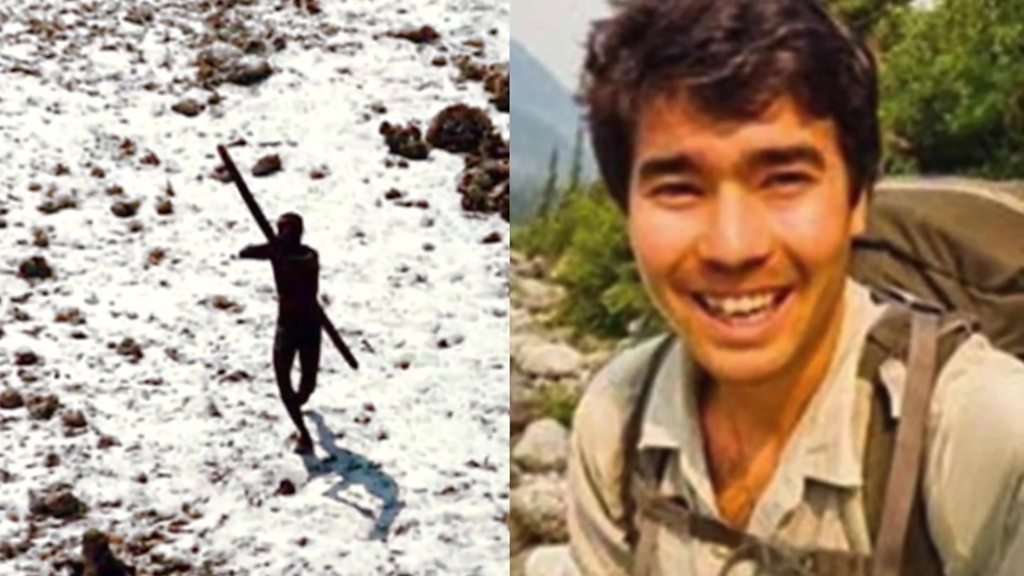Media playback is unsupported on your device Media caption Who are the Sentinelese?
Indian officials should abandon efforts to retrieve the body of an American missionary reportedly killed by an endangered tribe in the Andaman and Nicobar islands, a rights group says.
Survival International says any attempt is "incredibly dangerous" for both the Sentinelese tribesmen and officials.
John Allen Chau was said to have been killed with arrows when he landed on North Sentinel on 17 November.
He was trying to convert the protected people to Christianity.
Indian authorities struggled to retrieve Chau's body over the weekend, when a police boat faced off with Sentinelese tribesmen but withdrew to avoid confrontation.
"The risk of a deadly epidemic of flu, measles or other outside disease is very real, and increases with every contact," said Survival International's director Stephen Corry. "Such efforts in similar cases in the past have ended with the Sentinelese attempting to defend their island by force."
Mr Corry concluded: "Mr Chau's body should be left alone, as should the Sentinelese."
Survival International advocates for tribal peoples' rights and has campaigned for the protection of the indigenous groups living in the Andamans.
The fishermen who ferried Chau, 27, to North Sentinel said they saw tribesmen drag a body along a beach and bury it.
The fishermen later accompanied police back to the point on the island where they believed the body was buried.
Six fishermen and one other person have been arrested over the incident.
On Saturday, police stationed their boat about 400m (437 yards) offshore and, using binoculars, saw tribesmen on the beach armed with bows and arrows.
Image copyright Survival International Image caption Few images of the endangered tribe exist
Image copyright Christian Caron - Creative Commons A-NC-SA Image caption The Sentinelese stand guard on an island beach in 2005
Regional police chief Dependra Pathak told Agence France-Presse: "They stared at us and we were looking at them." The boat then withdrew.
"We have mapped the area with the help of these fishermen. We have not spotted the body yet but we roughly know the area where he is believed to be buried," Mr Pathak said.
Outsiders are banned from even approaching the island so as to protect the people who live there, and their way of life.
The complete isolation of the Sentinelese people means contact with the outside world could put them at risk, as they are likely to have no immunity to even common illnesses such as flu and measles.
The tribesmen have also treated outsiders with hostility for years. In 2006, two fishermen were killed and their bodies placed on bamboo stakes, Mr Pathak said.
A murder case has been registered against unknown persons but it has not been suggested tribesmen will face any charges.
Chau's family have said they forgive those who killed him.

TigerWhale on November 26th, 2018 at 20:04 UTC »
What if this is why aliens won't come visit? Maybe they've already been here once or twice but spread major diseases and galacticly outlawed it.
kowell on November 26th, 2018 at 18:11 UTC »
the risk of spreading infection to the tribe is too great and increases with every contact
That and you know... the arrows.
bbcnews on November 26th, 2018 at 16:57 UTC »
John Allen Chau's body "should be left alone, as should the Sentinelese" - Survival International director Stephen Corry
https://www.bbc.co.uk/news/world-asia-india-46345231